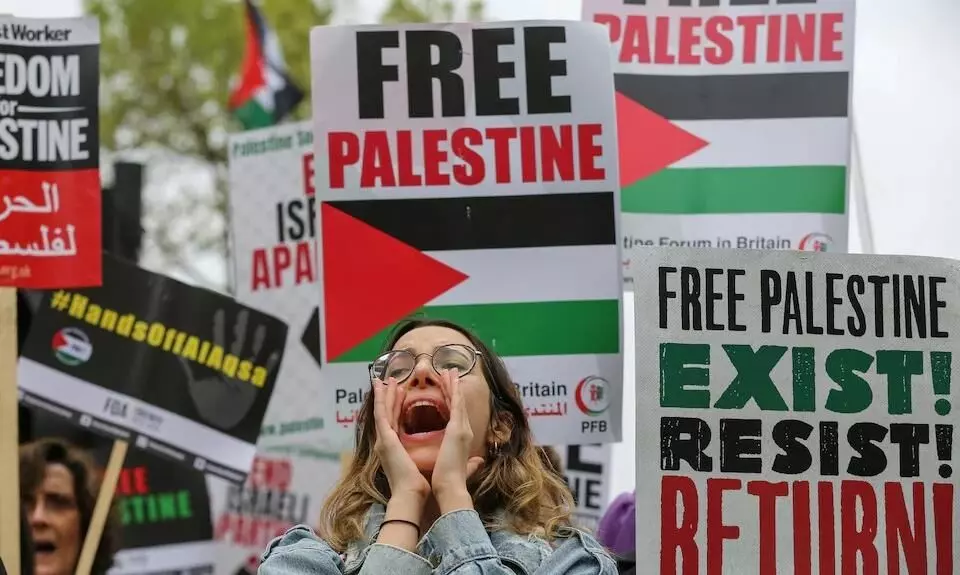
Palestinian activists doubt implication of ruling on Israel’s withdrawal
text_fieldsIn the wake of the International Court of Justice (ICJ)’s ruling that Israel should end its occupation of the Palestinian regions, including the West Bank, Gaza, and East Jerusalem, Palestinian activists in the West Bank believe that unless there is collective pressure from the international community, the ruling will do nothing to improve the lives of Palestinians.
The International Court of Justice (ICJ) has declared Israel’s occupation of Palestinian territories, including the West Bank, Gaza, and East Jerusalem, as unlawful. In a landmark ruling, the world’s highest court found that Israel is forcibly displacing Palestinians, exploiting resources, and annexing land by force, violating Palestinians' right to self-determination.
This ruling, supported by a 12-3 majority, calls for Israel to cease all settlement construction in the West Bank and compensate Palestinians for human rights violations.
The ICJ’s decision, however, is non-binding and was sought by the United Nations General Assembly in 2022 to clarify the legal implications of the occupation. Despite the strong language used in the ruling, activists and legal experts express scepticism about its impact on the ground. They stress that without collective international pressure, especially from the UN Security Council and General Assembly, the situation for Palestinians is unlikely to improve.
Historical precedent fuels this scepticism. A 2004 ICJ advisory opinion also found Israel's separation wall and settlements on occupied Palestinian land illegal. Yet, since that ruling, Israeli settlements have not only persisted but have expanded significantly. The number of Israeli settlers in the West Bank has increased from 250,000 in 1993 to over 700,000 in 2023, demonstrating a lack of enforcement and international accountability.
Palestinian advocacy groups emphasize that the ICJ's rulings hold little weight unless third states and the global community take concrete actions against Israel’s policies. They argue that it is imperative for international bodies to ensure the full realization of Palestinian self-determination and to impose sanctions on Israel for its breaches of international law. Without such measures, they contend, the cycle of occupation and settlement expansion will continue unabated.
The ICJ has urged the UN to take decisive steps to end Israel’s unlawful occupation swiftly. Yet, the enduring challenge remains to translate legal judgments into effective political action. For many Palestinians and their advocates, this latest ICJ ruling is a call to the international community to move beyond words and take tangible steps to enforce international law and protect Palestinian rights.

















